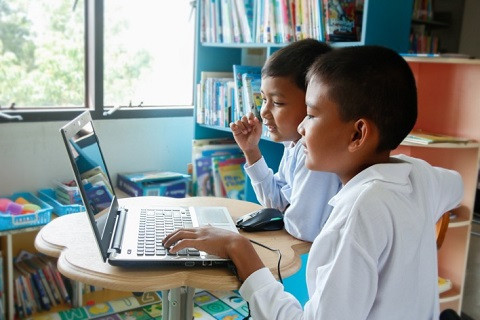
GCED Basic Search Form
Quick Search
You are here
News

UNESCO observes that over 100 countries have implemented nationwide closures, impacting over half of world’s student population. Several other countries have implemented localized school closures. In our sub-region, in 3 countries (Kazakhstan, Kyrgyzstan and Uzbekistan) schools and education institutions have been closed and moved to distant learning.
UNESCO is currently looking on closely working with ministries of education in affected and concerned countries to ensure continued learning for all children and youth through alternative channels.
UNESCO’s response to COVID-19 in education sector includes:
* Technical assistance to quickly prepare and deploy inclusive distant learning solutions, utilizing hi-tech, low-tech and no-tech approaches.
* Webinars for minister of education officials and other stakeholders to share information about country efforts to maintain the provision of inclusive education in different contexts.
* A selection of digital learning resources that governments, schools, teachers, parents can use to open opportunities for learners unable to attend to school, some of these resources are also available in Russian.
* A repository of national learning platforms designed to support the continuity of curriculum-based study, including in Uzbekistan.
Examples of selected National learning platforms for Kazakhstan are found here , while for Kyrgyzstan they are posted here.
In addition, the UNESCO Institute for Information Technologies in Education (UNESCO IITE) has launched a new online platform COVID-19. Reducing the impact on education. Partners of this initiative are IITE, UNESCO institutes and bureaus, leading universities, major social networks, search engines and IT companies, as well as international non-profit organizations and associations dealing with ICT in education.

©UNESCO IITE
The platform provides numerous partner resources – educational courses, webinars, distance learning portals, communities and technology solutions that allow you to organize training through social networks, as well as instructions and guides that allow schools, universities and individual teachers to switch to remote learning and interact with students. The materials include examples of practical solutions to support the educational process in the context of the COVID-19 epidemic.
A separate section contains digital solutions for distance learning from Eastern Europe and Central Asia.
On March 20 this year, UNESCO IITE in partnership with the Google for Education team have launched a new Teach From Home platform to help teachers in different parts of the world affected by the coronavirus epidemic support the educational process through online learning.

©UNESCO IITE
Teach From Home is a temporary hub of information and tools for educators to organize interaction with students through video calls that allow them to invite entire class, get real time questions from students and livestream the lessons. The platform also provides learning opportunities and effective teacher-student interaction without video calls through making a special website to host lesson information, worksheets and videos, creating online quizzes and providing real-time feedback in Google Docs.
Furthermore, there are ideas how to keep students engaged and sites for teachers to interact and share valuable resources and tips. Last but not the least, Teach From Home platform fully incorporates principles of inclusion and equity as it ensures equal access to education for all students with the use of assistive technology and accessibility features.
As for digital learning solutions in the sub-region, UNESCO is planning to support cluster countries to deploy ICT Competencies Framework for Teachers (Kyrgyzstan, Tajikistan) and has been implementing the project on development of online modules for teachers to teach Education for Sustainable Development for 5-6 grades in Kyrgyzstan. The modules are expected to be piloted at selected schools in the second half of 2020.
For more information please see UNESCO’s regular updates on the impact of COVID-19 on education and UNESCO Almaty’s webpage.
URL:
http://en.unesco.kz/unesco-s-education-measures-in-response-to-covid-19
